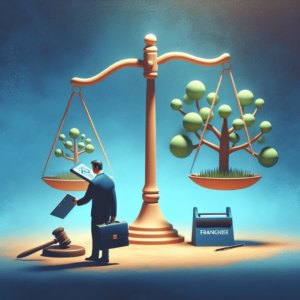HR compliance checklists play a pivotal role in ensuring that organizations adhere to employment laws and regulations. By outlining essential tasks and requirements, these checklists help streamline HR processes, foster a compliant work environment, and boost overall employee morale. Whether you’re a small startup or a large enterprise, understanding and implementing these checklists can significantly enhance your HR strategy.
The importance of maintaining compliance cannot be overstated, as it protects both the organization and its employees from potential legal issues. A well-structured HR compliance checklist not only serves as a guide but also as a tool for assessing and improving organizational practices. With a focus on key elements, benefits, and industry-specific considerations, this discussion will cover everything you need to know about HR compliance checklists.
Introduction to HR Compliance Checklists
HR compliance checklists serve as essential tools for organizations striving to adhere to employment laws and regulations. These checklists help ensure that companies are following the necessary legal requirements, which can vary based on industry, location, and company size. Maintaining compliance is crucial to prevent legal issues, fines, and damage to a company’s reputation.The importance of compliance extends beyond legal ramifications; it reflects a company’s commitment to ethical practices and employee welfare.
Organizations must prioritize compliance to create a safe and fair workplace. Common components of HR compliance checklists typically include items related to hiring practices, workplace safety protocols, employee training programs, and documentation requirements.
Benefits of Using HR Compliance Checklists
Implementing HR compliance checklists in a business setting brings numerous advantages. These benefits include increased efficiency in HR processes, a clear framework for compliance, and enhanced communication within teams. By utilizing checklists, organizations can streamline their onboarding procedures, training sessions, and performance assessments.For example, a well-structured compliance checklist can help HR departments quickly identify missing documentation or non-compliant practices, enabling teams to address issues proactively.
Moreover, compliance has a significant impact on employee morale and organizational reputation; a compliant workplace fosters trust and satisfaction among employees, leading to higher retention rates.
Key Elements of HR Compliance Checklists
A comprehensive HR compliance checklist should include several essential items to ensure thoroughness. Key elements may encompass:
- Employee onboarding procedures
- Safety training protocols
- Documentation of employee benefits
- Equal opportunity employment practices
- Records of employee performance evaluations
- Compliance with labor laws and regulations
Customizing checklists to fit specific organizational needs is vital; companies can adapt their lists based on industry requirements, company size, and employee roles. For instance, industries like healthcare may require additional items related to patient confidentiality, while tech companies might emphasize data protection compliance.
HR Compliance Checklists for Different Business Functions

Different business functions present unique compliance considerations that HR must address. For instance, Business Accounting and Payroll require adherence to tax regulations, employee classification, and timely wage payments. Ensuring that payroll practices comply with the Fair Labor Standards Act (FLSA) is critical to avoid penalties.In industries such as Construction and Agriculture, there are specific HR compliance needs, including worker safety regulations, equipment handling training, and adherence to OSHA standards.
Conversely, sectors like Advertising and Human Resources may focus on compliance with advertising standards and human rights regulations, respectively. Understanding these unique requirements aids HR professionals in developing targeted compliance strategies.
Creating a Compliance Checklist for Small Businesses
Small businesses can benefit immensely from developing their own HR compliance checklists. The process can be organized into clear steps:
- Identify local, state, and federal laws applicable to the business.
- Consult industry-specific guidelines to ensure comprehensive coverage.
- Collaborate with employees to understand common compliance challenges.
- Draft a checklist that addresses essential compliance items.
- Regularly review and update the checklist to adapt to changing regulations.
Small businesses often face challenges such as limited resources and lack of knowledge about compliance requirements. Checklists can help overcome these obstacles by providing a structured approach to ensure adherence without overwhelming staff. Simplified compliance items, such as basic employee classification and safety training protocols, can significantly ease the burden on startups and small operations.
Training and Implementation of HR Compliance Checklists
Training employees on the use of HR compliance checklists is crucial for effective implementation. HR departments can develop training programs that focus on the importance of compliance, how to use checklists, and the potential consequences of non-compliance. Regular workshops and refresher courses can keep compliance top-of-mind for all staff members.Establishing a plan for regularly updating and maintaining compliance checklists is essential for organizations to adapt to new laws and regulations.
Organizations should set a schedule for periodic reviews and engage in discussions with legal counsel to ensure that their checklists remain relevant and effective.Monitoring and evaluating compliance adherence can be accomplished through regular audits and feedback sessions. These practices ensure that checklists are used effectively and help identify areas for improvement.
Case Studies and Real-World Applications

Several organizations have successfully implemented HR compliance checklists, leading to improved compliance rates and reduced legal risks. For instance, a mid-sized manufacturing company created a detailed checklist to address workplace safety, resulting in a significant decrease in workplace accidents.Conversely, businesses that face compliance failures often share valuable lessons learned. For example, a retail company that neglected to adhere to wage laws faced severe penalties and loss of reputation.
These experiences emphasize the importance of effective compliance strategies and the role of checklists in managing HR practices across various industries.
The Future of HR Compliance Checklists
Looking ahead, potential changes in compliance regulations may significantly affect how HR checklists are structured. As labor laws evolve, HR professionals must stay informed about new regulations that could impact their organizations. For instance, the rise of remote work has prompted discussions surrounding remote employee rights and data protection laws.Technological advancements are expected to enhance HR compliance management, with automated systems capable of tracking compliance adherence and updating checklists in real-time.
The role of HR professionals is also evolving, as they become pivotal in ensuring compliance while supporting diverse workforce needs in a rapidly changing business landscape.
Closing Notes
In conclusion, HR compliance checklists are indispensable tools that allow organizations to navigate the complex landscape of employment laws and regulations. By understanding their components and implementing them effectively, businesses can create a culture of compliance that enhances their reputation and fosters employee satisfaction. As compliance requirements evolve, staying informed and adaptable will ensure that your HR practices remain robust and effective for years to come.
Query Resolution
What exactly are HR compliance checklists?
HR compliance checklists are tools that help organizations ensure they meet legal and regulatory requirements related to employment laws.
Who should use HR compliance checklists?
HR compliance checklists should be used by HR professionals, managers, and business owners to maintain compliance across all HR activities.
How often should HR compliance checklists be updated?
HR compliance checklists should be reviewed and updated regularly, ideally at least annually, or whenever there are significant changes in laws or company policies.
Can small businesses benefit from HR compliance checklists?
Absolutely! Small businesses can greatly benefit from HR compliance checklists by simplifying their processes and avoiding potential legal pitfalls.
Where can I find templates for HR compliance checklists?
Templates for HR compliance checklists can often be found online through HR websites, professional associations, or can be customized based on specific organizational needs.




